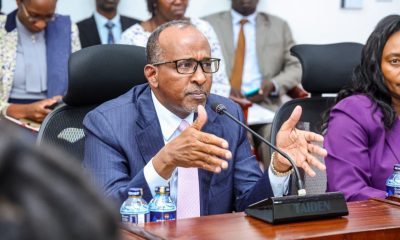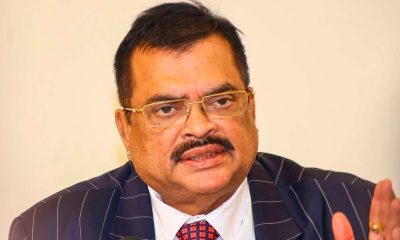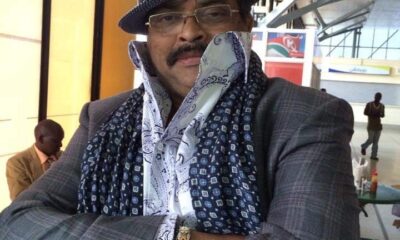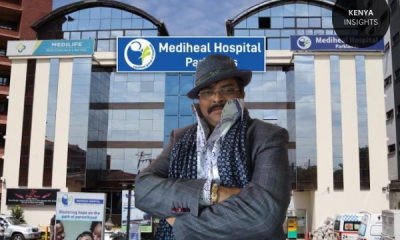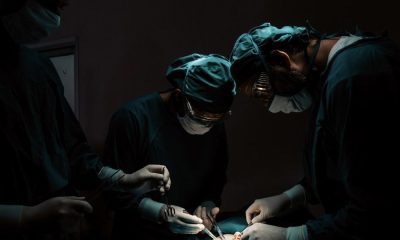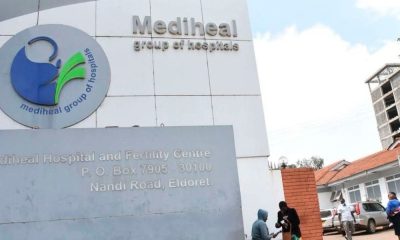Investigations
Mediheal: Damning Report Tightly Links Mishra to Organ Trafficking, Recommends Criminal Charges
The investigation uncovered evidence of what appears to be a transnational organ trafficking network with tentacles reaching across continents.
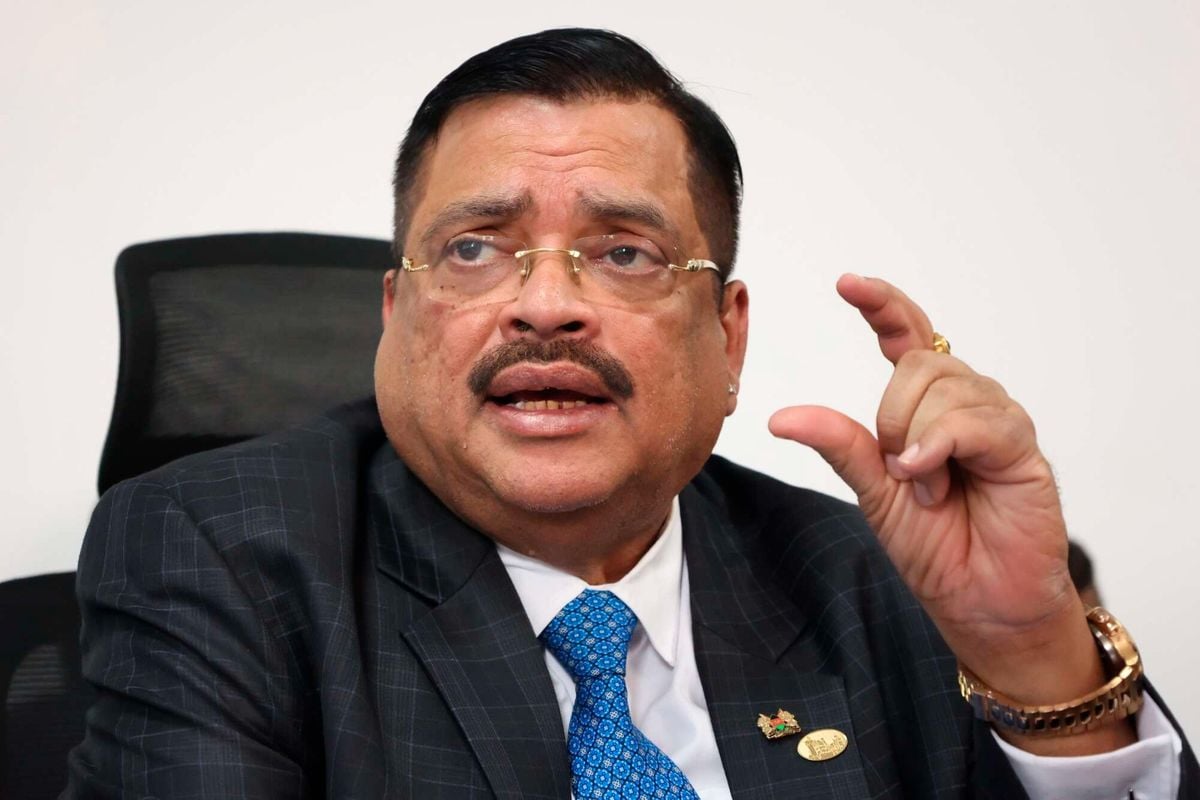
Government Taskforce Exposes International Kidney Harvesting Syndicate Operating from Eldoret Hospital
A bombshell government investigation has recommended immediate criminal charges against Dr. Swarup Mishra, founder of Mediheal Group of Hospitals, following evidence of his alleged central role in an international organ trafficking syndicate that exploited hundreds of impoverished Kenyans.
The Independent Investigative Committee on Tissue and Organ Transplant Services delivered its damning 314-page report to Health Cabinet Secretary Aden Duale on Tuesday, exposing what investigators describe as a sophisticated criminal enterprise that harvested kidneys from vulnerable donors for wealthy international recipients.
Evidence
The investigation, spanning three months and analyzing data from 452 donors and 447 recipients across multiple institutions, revealed that Mediheal Hospital in Eldoret accounted for approximately 81% of all donors and 76% of all recipients in Kenya’s organ transplant sector between 2018 and March 2025.
This staggering concentration of transplant activity at a single private facility immediately raised questions about the hospital’s operations and regulatory oversight.
The data paints a disturbing picture of systematic exploitation that operated on an industrial scale. Mediheal Hospital handled 417 donors and 340 recipients, with male patients making up three out of every four cases.
Most concerning to investigators was that nearly 40% of recipients had “unknown status,” indicating possible deliberate gaps in documentation to obscure their identities and origins.
The investigation uncovered evidence of what appears to be a transnational organ trafficking network with tentacles reaching across continents.
While Kenyan recipients made up half of the donors, those with undocumented nationalities, along with individuals from Israel and Uganda, comprised the lion’s share of the remaining cases.
Perhaps most tellingly, investigators found that 60 people failed to reveal their country of origin, a pattern they believe was designed to cover tracks and obscure the international nature of the operation.
Previous reporting by international media organizations, including Deutsche Welle, had already exposed how impoverished Kenyans were paid KSh294,000 for their organs, which were then sold to recipients in Germany for Sh3.2 million each.
Foreign recipients were reportedly paying up to $200,000 for transplants at the private Kenyan hospital, creating a profit margin that investigators say demonstrates the predatory nature of the alleged scheme.
The taskforce identified numerous red flags that had gone unaddressed by regulatory authorities for years.
A single surgeon and a single anesthesiologist operated on 24 patients within a 14-day period, raising serious concerns about patient safety and the quality of care.
Documentation irregularities plagued the operation, with concerns about the authenticity of signatures and some patients mysteriously categorized as “mutual friends.”
The laboratory used to test Kenyan samples in India was not even registered by the Kenya Medical Laboratory Technicians and Technologists Board, yet continued to process critical medical tests.
The pattern of operations suggested that Mediheal was functioning as a transplant tourism destination, commanding the premium pricing structures typically associated with such medical tourism operations.
This positioning allowed the hospital to attract wealthy international clients while exploiting the desperation of local donors who had few alternatives for economic survival.
The committee has now recommended criminal investigations for four key figures at the center of the alleged scheme.
Dr. Swarup Mishra faces charges as the hospital’s founder and owner, while Dr. A.S. Murthy, the nephrologist, is accused of running a “one-man show” in what investigators emphasize should be a “team sport” requiring multiple specialists and oversight.
Dr. Sananda Bag, the urologist and transplant surgeon, and Dr. Vijay Kumar, the anesthesiologist, are also recommended for criminal investigation for their potential involvement in the trafficking operation.
Mishra cornered
Despite mounting evidence, Mishra has maintained his innocence with religious fervor.
“In the name of God, I swear I am not guilty. Mediheal has never been involved in any form of organ trafficking. This is a conspiracy to finish me,” he declared in April when the allegations first surfaced publicly.
However, his protestations have been undermined by the systematic evidence compiled by the government taskforce.
The allegations have already had significant consequences for Mishra’s career and standing. President William Ruto suspended Mishra as the chairperson of the Kenya BioVax Institute in April, with the suspension taking effect immediately to allow investigations into the organ trafficking allegations.
This presidential action signaled the seriousness with which the government views the charges.
The fall from grace is particularly stark for a man who first set foot on Kenyan soil in 1997 as an ambitious gynaecologist with nothing but a suitcase and a dream.
Over two decades, Mishra built a medical empire that positioned him as a respected healthcare provider and even earned him government appointments.
His transformation from immigrant doctor to alleged organ trafficking kingpin represents one of the most dramatic reversals of fortune in Kenya’s recent medical history.
Systemic failures
The report also exposes broader regulatory failures that allowed the alleged scheme to operate with impunity for years.
The committee recommends that the Kenya Medical Practitioners and Dentists Council be investigated for potential regulatory failure and possible criminal collusion due to their repeated inaction on reports of wrongdoing at Mediheal Hospital.
Dr Cheptinga claimed that interference with the final report occurred at the highest levels, suggesting that the scandal may extend beyond Mediheal itself into government regulatory bodies.
Cabinet Secretary Duale has promised decisive action that goes beyond the usual government rhetoric.
“I want to assure you that report will not find itself on the shelves. It will be implemented. I will take it to Parliament and Cabinet,” he declared upon receiving the report. His commitment suggests that the government recognizes the international embarrassment and domestic outrage that the scandal has generated.
The committee has made sweeping recommendations for reform that would fundamentally restructure Kenya’s organ transplant system.
These include establishing a National Organ Transplant Authority, creating a National Transplant Coordination Centre, and implementing robust oversight mechanisms for all health facilities offering diagnostic, dialysis, and transplant services.
The committee also recommends that Mediheal Hospital remain suspended until all investigations are concluded.
Behind the statistics and regulatory failures lies a deeply human story of exploitation that has touched hundreds of families across Kenya.
Rip-off
The investigation revealed how young, impoverished people were systematically taken advantage of to donate their kidneys at a cost of about Ksh.400,000, while Mediheal Hospital allegedly sold those same organs for almost Ksh.30 million to patients locally and overseas.
This vast markup, from approximately $3,000 paid to donors to nearly $200,000 charged to recipients, illustrates both the predatory nature of the alleged scheme and the vulnerability of those it exploited.
The Mediheal scandal has triggered multiple parallel investigations that promise to keep the story in the headlines for months to come.
Parliament’s Health Committee has opened an 80-day inquiry into the alleged organ harvesting, while the government has suspended all organ transplant services at the Mediheal Group of Hospitals with immediate effect.
These overlapping investigations suggest that the full scope of the alleged criminal enterprise may be even larger than currently understood.
As Kenya grapples with this unprecedented healthcare scandal, the case has exposed critical weaknesses in the country’s medical regulatory framework and raised serious questions about how such an extensive alleged criminal operation could operate for years without detection.
The scandal has damaged Kenya’s reputation as a medical tourism destination and raised questions about the oversight of private healthcare facilities throughout the country.
The next phase will determine whether justice will be served for the vulnerable individuals who may have been exploited, and whether Kenya can rebuild trust in its organ transplant system through meaningful reform and accountability.
For now, the weight of evidence compiled by the government taskforce has placed Swarup Mishra at the center of what may be one of the most significant medical scandals in Kenya’s history.
Kenya Insights allows guest blogging, if you want to be published on Kenya’s most authoritative and accurate blog, have an expose, news TIPS, story angles, human interest stories, drop us an email on [email protected] or via Telegram
-

 Grapevine2 weeks ago
Grapevine2 weeks agoAlleged Male Lover Claims His Life Is in Danger, Leaks Screenshots and Private Videos Linking SportPesa CEO Ronald Karauri
-

 Lifestyle2 weeks ago
Lifestyle2 weeks agoThe General’s Fall: From Barracks To Bankruptcy As Illness Ravages Karangi’s Memory And Empire
-

 Grapevine7 days ago
Grapevine7 days agoRussian Man’s Secret Sex Recordings Ignite Fury as Questions Mount Over Consent and Easy Pick-Ups in Nairobi
-

 Investigations4 days ago
Investigations4 days agoMulti-Million Dollar Fraud: Three Kenyans Face US Extradition in Massive Cybercrime Conspiracy
-

 Economy3 days ago
Economy3 days agoIran Demands Arrest, Prosecution Of Kenya’s Cup of Joe Director Director Over Sh2.6 Billion Tea Fraud
-

 Investigations2 weeks ago
Investigations2 weeks agoEpstein’s Girlfriend Ghislaine Maxwell Frequently Visited Kenya As Files Reveal Local Secret Links With The Underage Sex Trafficking Ring
-

 News2 weeks ago
News2 weeks agoState Agency Exposes Five Top Names Linked To Poor Building Approvals In Nairobi, Recommends Dismissal After City Hall Probe
-

 News2 days ago
News2 days agoTHE FIRM IN THE DOCK: How Kaplan and Stratton Became the Most Scrutinised Law Firm in Kenya

